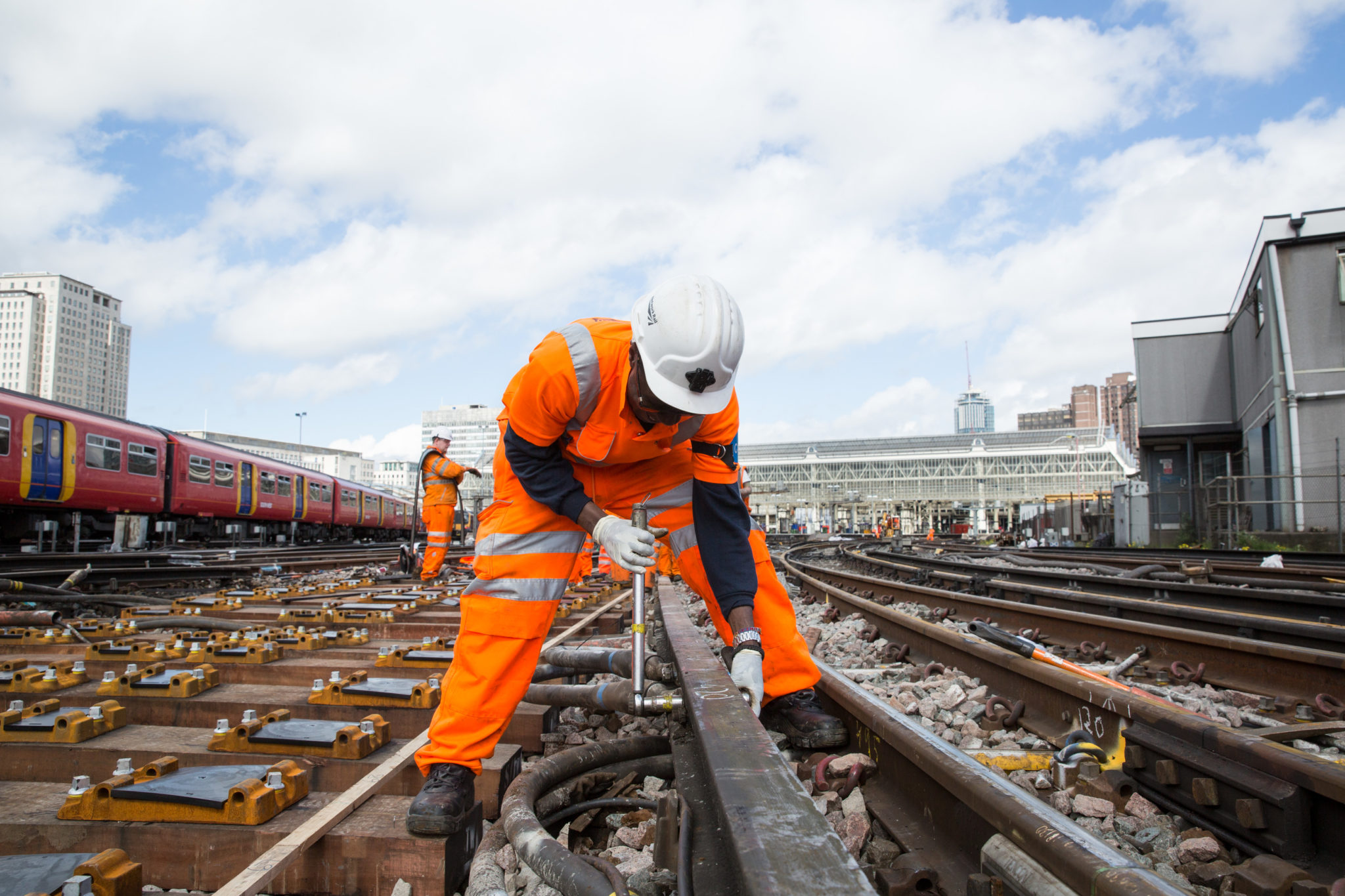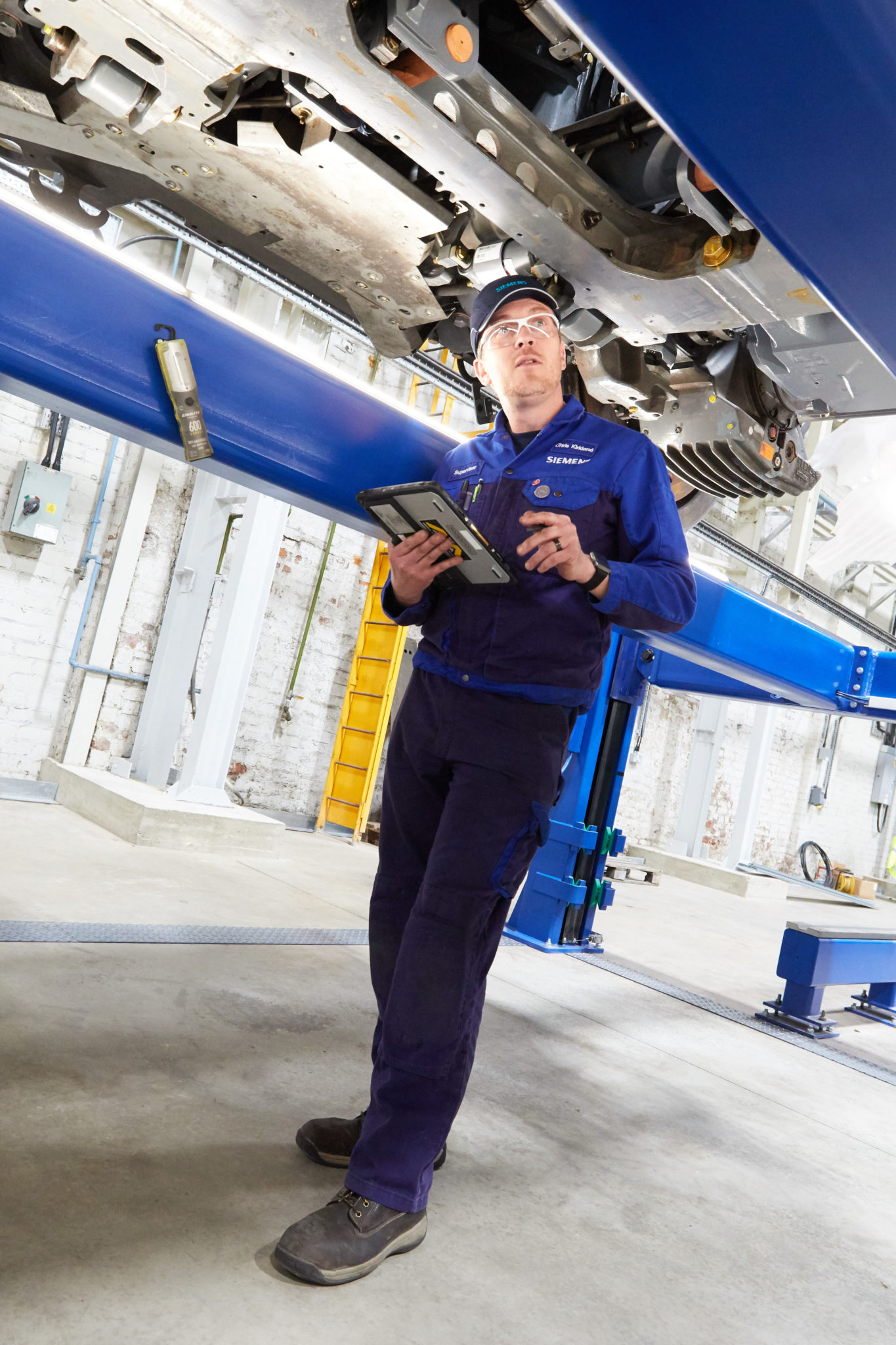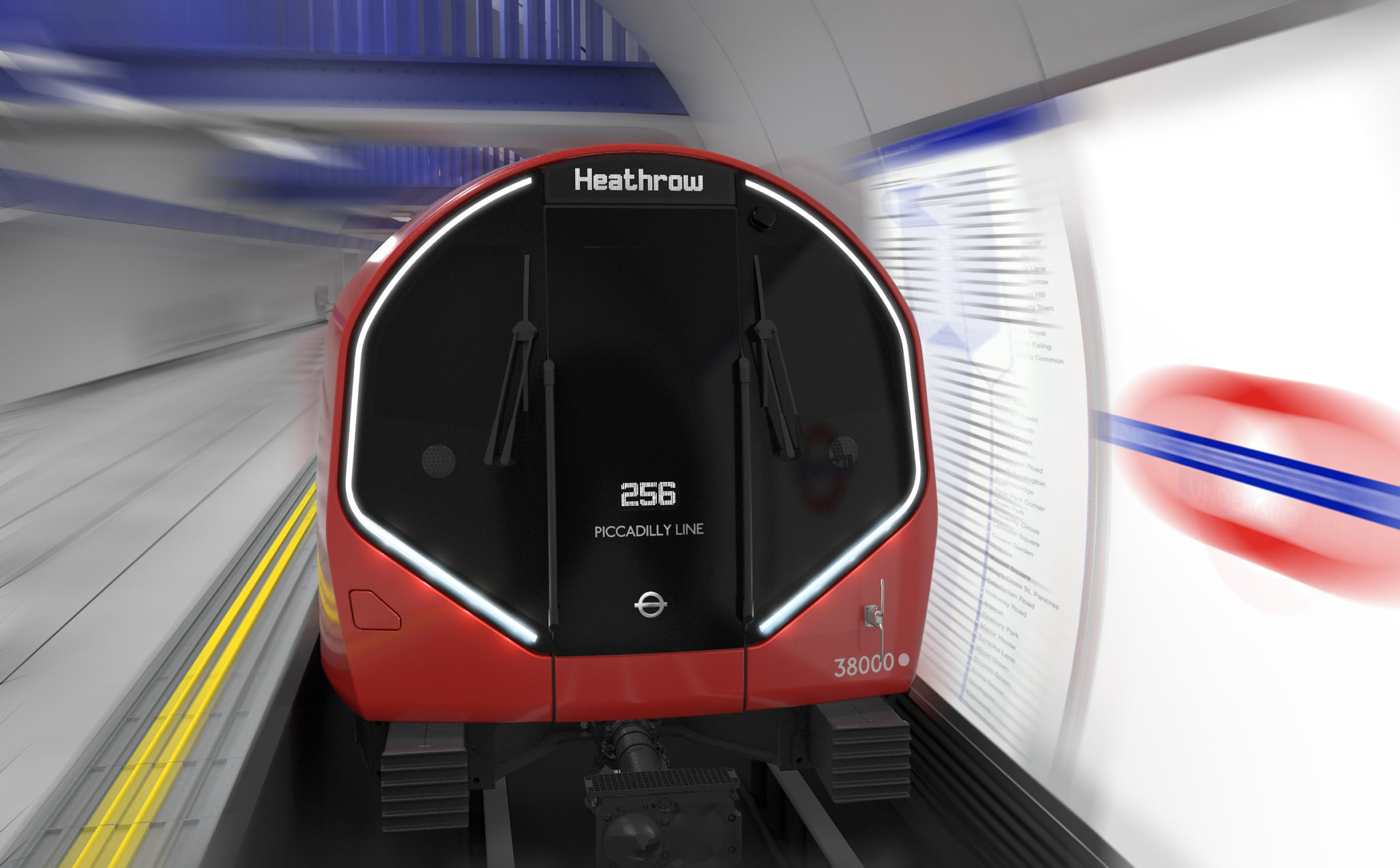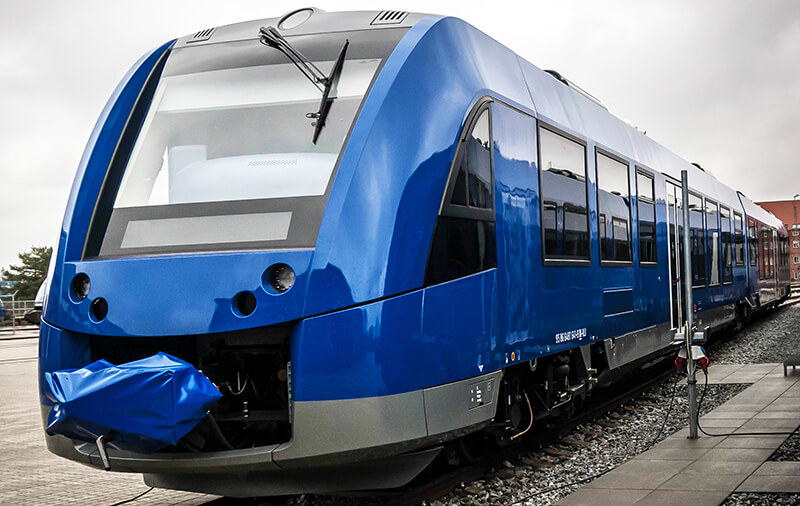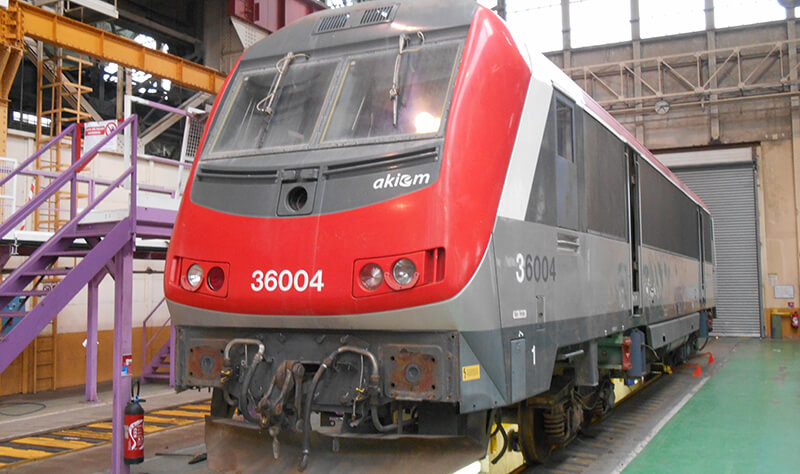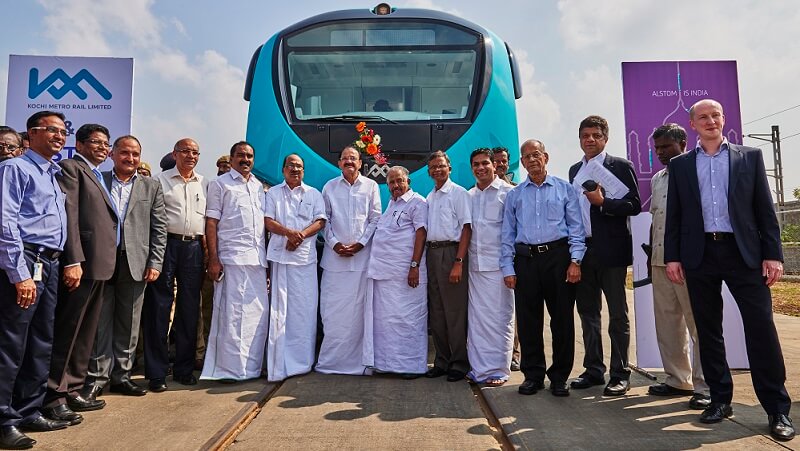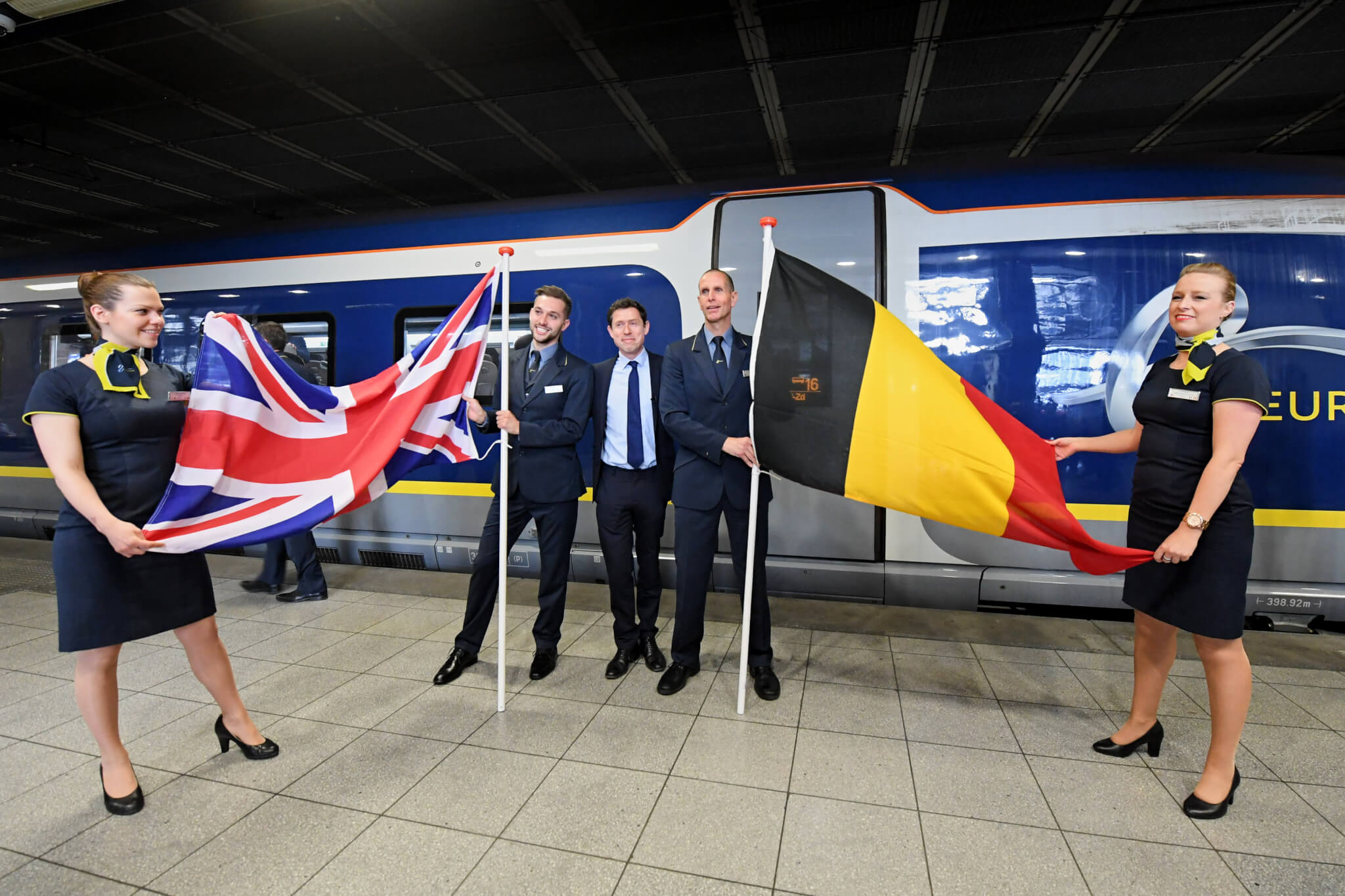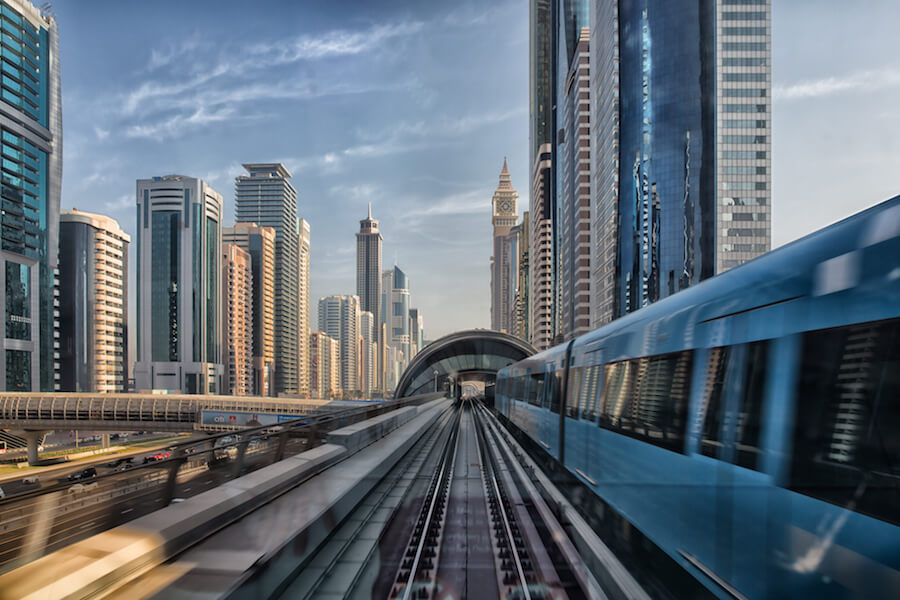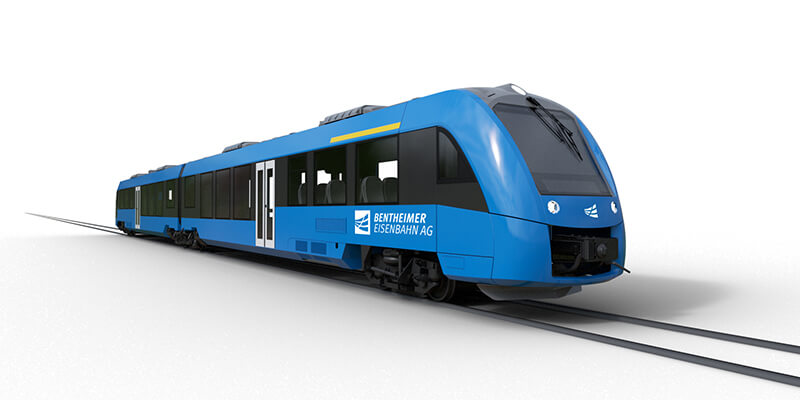A rare sight greeted residents in Doncaster yesterday, 08 August 2017, as a refurbished Eurostar power car – previously used to carry more than 160 million passengers between the UK and mainland Europe – became the latest arrival at the town’s new world-class further education institution, the National College for High Speed Rail.
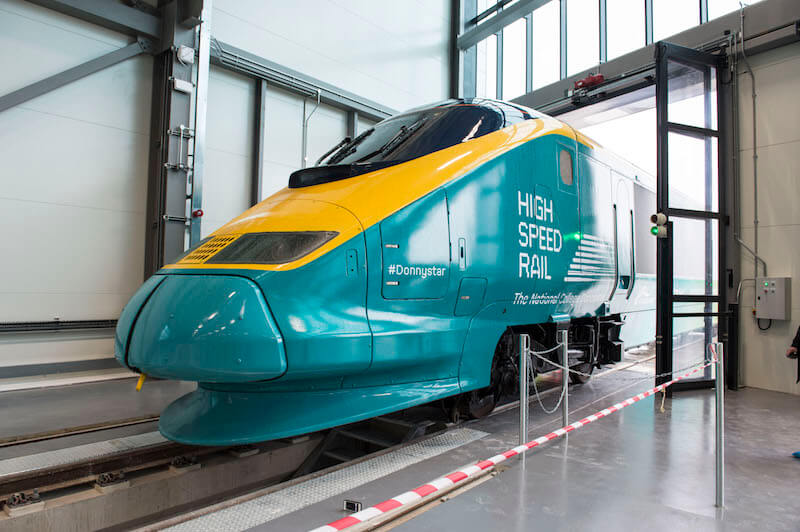
Educating Britain’s Next Generation of Engineers
The 25-tonne power car, which used to whisk passengers from London to Paris and Brussels at speeds of more than 180mph, has been generously donated to the college by Alstom and Eurostar after it had been retired from service. The train will now have a new lease of life in Doncaster by playing a critical role in educating Britain’s next generation of engineers.
Refurbished Eurostar Power Car
The power car – the classic original e300/ Class 373, or Trans Manche Super Train – arrived in Doncaster on the back of a low loader truck and was winched into place on a 700-metre length of rail track which has previously been donated to the college by British Steel.
To prepare for its arrival at the college, the power car has undergone extensive refurbishment by Alstom which has included an overhaul to its original livery to incorporate the colourful branding of the new National College for High Speed Rail – the largest of five new national colleges that has been created by the Government to ensure British workers can learn world-class skills.
National College for High Speed Rail
As an employer-led college, the National College for High Speed Rail is dedicated to solving the engineering, design, planning, manufacturing and construction skills gap that Britain faces as it looks to invest billions of pounds in modernising Britain’s rail network and wider transport infrastructure.
The college will play a key role in generating the workforce of the future who will design and build the UK’s new high-speed rail network and future infrastructure projects and has already created the UK’s first Certificate of Higher Education (CHE) in High Speed Rail and Infrastructure, which people in Doncaster can now apply for.
The newly refurbished power car will be used as part of the college’s wider education programme as leaners get to grips with a range of engineering specialisms from rolling stock, to track systems and power.
Clair Mowbray, chief executive for the National College for High Speed Rail, said:
“At the college we are passionate that our students and apprentices will learn world-class skills from the most experienced employers in the business, using industry-leading equipment.
“The best way to educate Britain’s future engineers and help reduce the national skills shortage, is to grant learners access to the kind of apparatus they will become familiar with when they go out to work for businesses in the field. The new power car will be used as a classroom and is also going to incorporate a virtual reality set-up, so that we can respond to industry needs and project different engineering configurations within the cabin. This train was world famous for creating the first rail link from London to Paris on the UK’s first high speed rail line. Now as we look to create more high speed rail in the UK, it is a real coup for the college to bring this working engine, with adaptable VR, into Doncaster.
“From next month, the college will be providing training and work experience for its first full intake of apprentices and learners. The new power car, alongside employer-led courses such as our certificate of higher education in high speed rail and infrastructure, will ensure that our learners have the very best assets and materials to for their education, so that we can help solve Britain’s productivity crisis and prepare a future generation of diverse talent for modern engineering and infrastructure projects.
“We’re extremely grateful for all the employer-led support that the college has received to date, and especially to Alstom and Eurostar for this generous donation.”
Mayor of Doncaster Ros Jones, said:
“It is great to see that the Eurostar engine has been delivered, this is a great addition to the college. It is beneficial for all those who will be attending the college to learn their skills and train on engines that they will be working on in the future. The college will not only train the rail engineers of the future but also enable businesses to tap into highly skilled and qualified rail engineers that help take them to the next level. For young people looking for a career path into a rewarding and well paid job in an expanding sector, the college should be high on their agenda.
“Doncaster, for generations has always led the way in the rail industry and the college well and truly cements our position as a rail town.”
Jason Baldock, HS2 Director at Alstom UK & Ireland, said:
“It’s a proud moment for all of us today as the UK’s first very high speed train arrives in Doncaster with its stunning new livery. When we built these iconic trains we knew they would be a success, but nobody imagined they would have an inspiring legacy like this after retirement, supporting the next generation of UK rail engineers.
“Alstom are huge supporters of the National College for High Speed Rail and the great work they are doing here and in Birmingham. We will be continuing to work closely with them as we open our complementary rail academy in Widnes in September. It’s an exciting time for the industry.”
Philippe Mouly, chief operating officer at Eurostar, said:
“We are very pleased that the power cars of two of our original Eurostar trains will play a key role in developing the skills and expertise of the rail engineers of the future. These iconic high-speed trains were ground-breaking and have transformed travel between the UK and mainland Europe”.
The National College for High Speed Rail has two campuses, in Doncaster and Birmingham, and will open in September. To find out more about the college and the courses that are available, please go to: www.nchsr.ac.uk
FOR ALL THE LATEST INFORMATION, NEWS, IMAGES, VIDEOS AND ARTICLES ON ALL ASPECTS OF RAILWAY EDUCATION/TRAINING, PLEASE CLICK HERE.

















